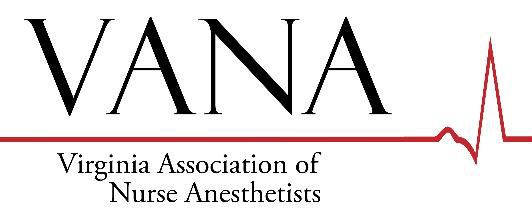Opioid-free anesthesia offers patients a safe alternative
Note: This column was published in the Sunday, Nov. 27, 2022 edition of The Virginian-Pilot. Click here to read.
Opioid-free anesthesia offers patients a safe alternative
By Katy Dean, CRNA
As a Certified Registered Nurse Anesthetist (CRNA), I am keenly aware of the risks associated with the medicines I use with my patients. For patient safety, peace of mind, and better patient outcomes, I choose to use opioid-free anesthesia as often as possible.
The Society for Opioid Free Anesthesia reports that opioid-free anesthesia is “a safer option for anesthesia administration that maximizes a patient’s respiratory ability and aggressively treats their pain, while eliminating the unwanted side effects of opioids.” Although post-op medications are not exclusively to blame for the opioid epidemic — which resulted in nearly 108,000 drug overdose deaths nationally and an estimated 2,488 in Virginia in 2021, according to the Centers for Disease Control and Prevention (CDC) — it’s our responsibility as practitioners of medication to educate one another, as well as our patients, on the benefits of opioid-free anesthesia. Administering opioid-free anesthesia is an effective way to reduce reliance on opioid medications for recovery after surgery and to help lower the number of drug overdose deaths.
Opioid-free anesthesia is growing in popularity: it can be used on any age group, alongside nearly any procedure, and the impact can be seen in patient outcomes immediately. Several of us on the team perform close to 95% of our anesthetics opioid free — a choice we are proud to make, and one our patients support.
I’m excited that CRNAs are leading the way in offering opioid-free anesthesia. CRNAs have been providing high-quality, cost-effective anesthesia care for more than 150 years, with over 1,800 CRNAs and over 250 student nurse anesthetists in Virginia. They care in our state for patients in hospital surgeries and delivery rooms, ambulatory surgical centers, military and veterans’ facilities, and dental and pain management offices. Each CRNA has earned a bachelor’s degree in nursing, and nearly all have a master’s or doctoral degree. All had to have worked at least a year in an intensive care unit (ICU) before they could attend a certified anesthesia program. CRNAs regularly complete additional training to stay current on the best practices for anesthesia care. That’s one reason the CRNAs at our hospital were eager to offer our patients opioid-free anesthesia as an alternative to other anesthesia options.
When we transitioned to using opioid-free anesthesia, we addressed skepticism head-on by demonstrating how a regional block can help a woman recover more quickly after having a cesarean section, and by showing how a change in pain medication can keep an elderly chronic pain patient clearer headed during a long-term hospital stay. Opioid-free anesthesia has quickly become embraced by our hospital center.
When considering the patient experience, opioid-free anesthesia remains the preferred option by many on our care teams. As a CRNA practicing to the full extent of my education and training, performing blocks and administering opioid-free anesthesia, I give my patients alternatives that can make wait time shorter and post operative recovery shorter, too. When we administer narcotics, the patients require more staff to tend to them and have longer recovery periods. At all levels, an opioid-free surgical option is just as safe for patients, with even better outcomes.
Keep in mind that opioid-free anesthesia doesn’t eliminate all pain and pressure following a procedure. As any new mom will tell you, if you’re having a baby, you’ll notice it afterwards. But it does keep our patients comfortable and maintains a level of safety, without the added risks associated with opioids. From pediatric care to elderly care, we’ve found better patient outcomes when using opioid-free anesthesia.
I’m proud to work within a hospital system that is continually implementing safe and pain-diminishing medications for our patients. While opioids certainly have a place in medicine today, it’s clear that our patients recover faster, and our outcomes are stronger when we consider opioid-free alternatives.
Katy Dean, CRNA, is the Chief CRNA at Sentara Williamsburg Regional Medical Center.

